Akash Das
Optimizing Deep Learning for Skin Cancer Classification: A Computationally Efficient CNN with Minimal Accuracy Trade-Off
May 27, 2025Abstract:The rapid advancement of deep learning in medical image analysis has greatly enhanced the accuracy of skin cancer classification. However, current state-of-the-art models, especially those based on transfer learning like ResNet50, come with significant computational overhead, rendering them impractical for deployment in resource-constrained environments. This study proposes a custom CNN model that achieves a 96.7\% reduction in parameters (from 23.9 million in ResNet50 to 692,000) while maintaining a classification accuracy deviation of less than 0.022\%. Our empirical analysis of the HAM10000 dataset reveals that although transfer learning models provide a marginal accuracy improvement of approximately 0.022\%, they result in a staggering 13,216.76\% increase in FLOPs, considerably raising computational costs and inference latency. In contrast, our lightweight CNN architecture, which encompasses only 30.04 million FLOPs compared to ResNet50's 4.00 billion, significantly reduces energy consumption, memory footprint, and inference time. These findings underscore the trade-off between the complexity of deep models and their real-world feasibility, positioning our optimized CNN as a practical solution for mobile and edge-based skin cancer diagnostics.
Agentic Multimodal AI for Hyperpersonalized B2B and B2C Advertising in Competitive Markets: An AI-Driven Competitive Advertising Framework
Apr 01, 2025
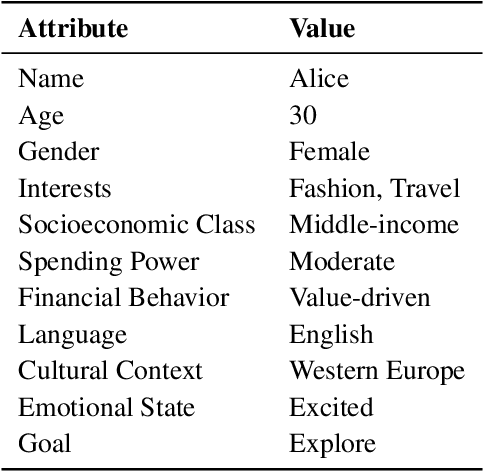
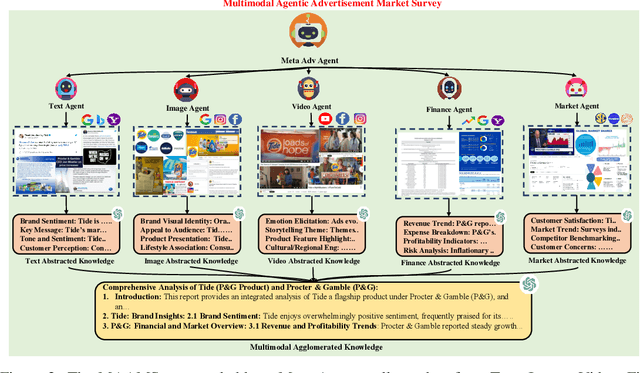
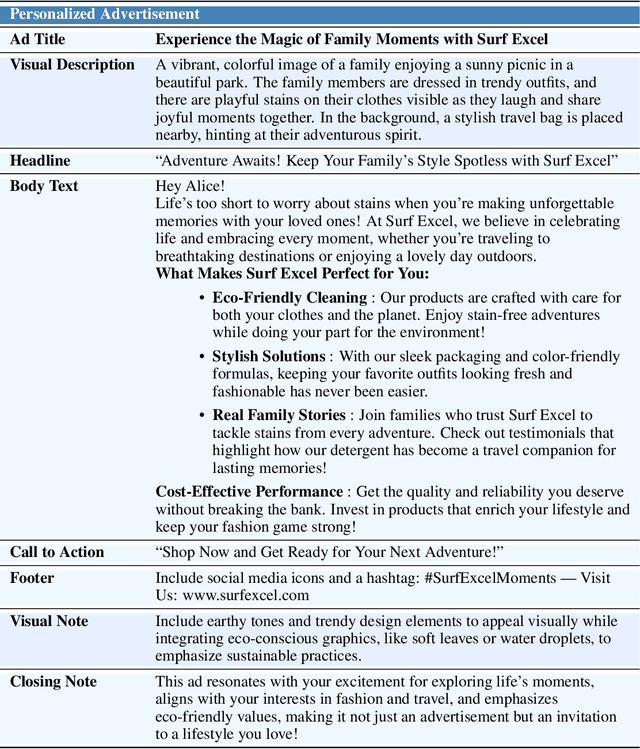
Abstract:The growing use of foundation models (FMs) in real-world applications demands adaptive, reliable, and efficient strategies for dynamic markets. In the chemical industry, AI-discovered materials drive innovation, but commercial success hinges on market adoption, requiring FM-driven advertising frameworks that operate in-the-wild. We present a multilingual, multimodal AI framework for autonomous, hyper-personalized advertising in B2B and B2C markets. By integrating retrieval-augmented generation (RAG), multimodal reasoning, and adaptive persona-based targeting, our system generates culturally relevant, market-aware ads tailored to shifting consumer behaviors and competition. Validation combines real-world product experiments with a Simulated Humanistic Colony of Agents to model consumer personas, optimize strategies at scale, and ensure privacy compliance. Synthetic experiments mirror real-world scenarios, enabling cost-effective testing of ad strategies without risky A/B tests. Combining structured retrieval-augmented reasoning with in-context learning (ICL), the framework boosts engagement, prevents market cannibalization, and maximizes ROAS. This work bridges AI-driven innovation and market adoption, advancing multimodal FM deployment for high-stakes decision-making in commercial marketing.
Accelerating Manufacturing Scale-Up from Material Discovery Using Agentic Web Navigation and Retrieval-Augmented AI for Process Engineering Schematics Design
Dec 08, 2024



Abstract:Process Flow Diagrams (PFDs) and Process and Instrumentation Diagrams (PIDs) are critical tools for industrial process design, control, and safety. However, the generation of precise and regulation-compliant diagrams remains a significant challenge, particularly in scaling breakthroughs from material discovery to industrial production in an era of automation and digitalization. This paper introduces an autonomous agentic framework to address these challenges through a twostage approach involving knowledge acquisition and generation. The framework integrates specialized sub-agents for retrieving and synthesizing multimodal data from publicly available online sources and constructs ontological knowledge graphs using a Graph Retrieval-Augmented Generation (Graph RAG) paradigm. These capabilities enable the automation of diagram generation and open-domain question answering (ODQA) tasks with high contextual accuracy. Extensive empirical experiments demonstrate the frameworks ability to deliver regulation-compliant diagrams with minimal expert intervention, highlighting its practical utility for industrial applications.
Depression Status Estimation by Deep Learning based Hybrid Multi-Modal Fusion Model
Nov 30, 2020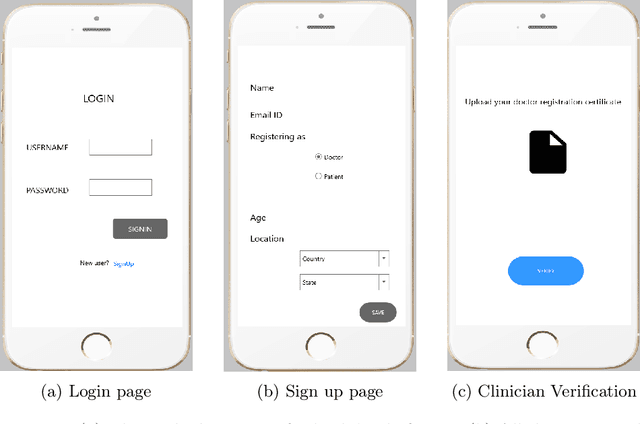
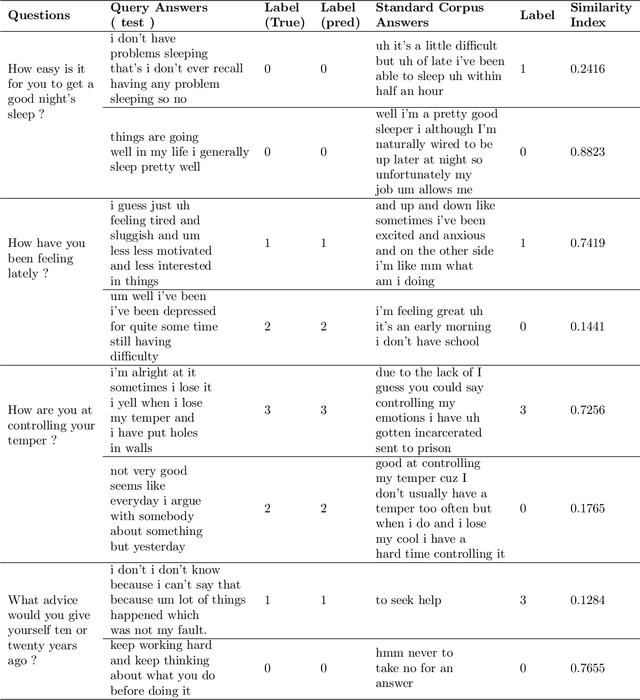
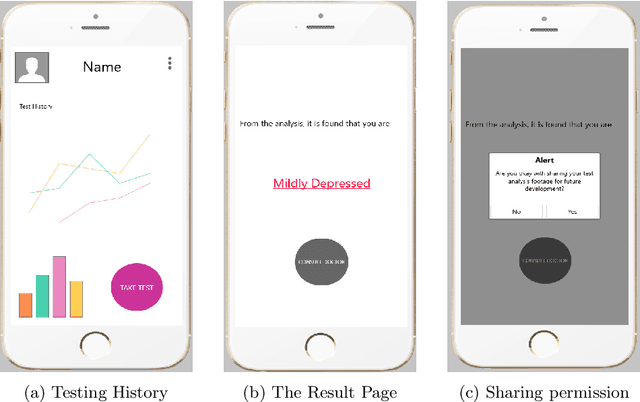
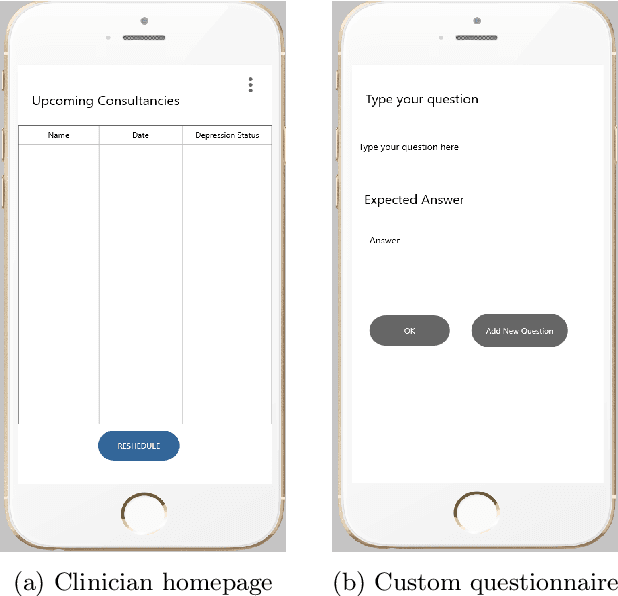
Abstract:Preliminary detection of mild depression could immensely help in effective treatment of the common mental health disorder. Due to the lack of proper awareness and the ample mix of stigmas and misconceptions present within the society, mental health status estimation has become a truly difficult task. Due to the immense variations in character level traits from person to person, traditional deep learning methods fail to generalize in a real world setting. In our study we aim to create a human allied AI workflow which could efficiently adapt to specific users and effectively perform in real world scenarios. We propose a Hybrid deep learning approach that combines the essence of one shot learning, classical supervised deep learning methods and human allied interactions for adaptation. In order to capture maximum information and make efficient diagnosis video, audio, and text modalities are utilized. Our Hybrid Fusion model achieved a high accuracy of 96.3% on the Dataset; and attained an AUC of 0.9682 which proves its robustness in discriminating classes in complex real-world scenarios making sure that no cases of mild depression are missed during diagnosis. The proposed method is deployed in a cloud-based smartphone application for robust testing. With user-specific adaptations and state of the art methodologies, we present a state-of-the-art model with user friendly experience.
A Data-Efficient Deep Learning Based Smartphone Application For Detection Of Pulmonary Diseases Using Chest X-rays
Aug 19, 2020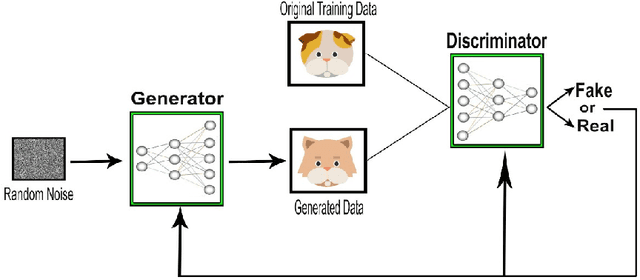
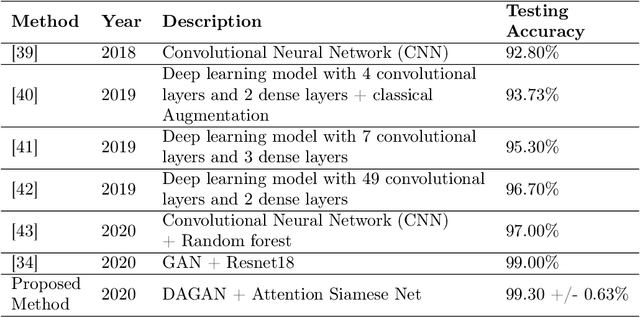
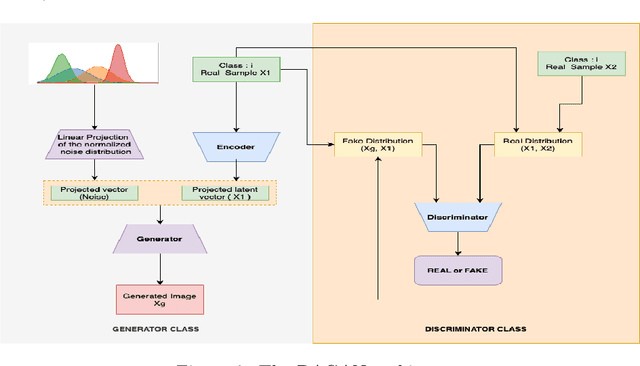
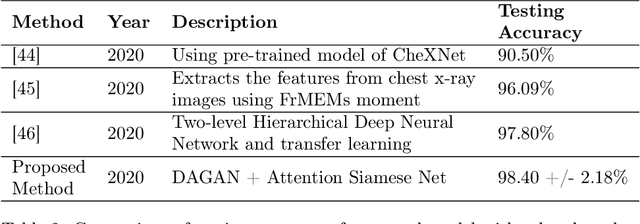
Abstract:This paper introduces a paradigm of smartphone application based disease diagnostics that may completely revolutionise the way healthcare services are being provided. Although primarily aimed to assist the problems in rendering the healthcare services during the coronavirus pandemic, the model can also be extended to identify the exact disease that the patient is caught with from a broad spectrum of pulmonary diseases. The app inputs Chest X-Ray images captured from the mobile camera which is then relayed to the AI architecture in a cloud platform, and diagnoses the disease with state of the art accuracy. Doctors with a smartphone can leverage the application to save the considerable time that standard COVID-19 tests take for preliminary diagnosis. The scarcity of training data and class imbalance issues were effectively tackled in our approach by the use of Data Augmentation Generative Adversarial Network (DAGAN) and model architecture based as a Convolutional Siamese Network with attention mechanism. The backend model was tested for robustness us-ing publicly available datasets under two different classification scenarios(Binary/Multiclass) with minimal and noisy data. The model achieved pinnacle testing accuracy of 99.30% and 98.40% on the two respective scenarios, making it completely reliable for its users. On top of that a semi-live training scenario was introduced, which helps improve the app performance over time as data accumulates. Overall, the problems of generalisability of complex models and data inefficiency is tackled through the model architecture. The app based setting with semi live training helps in ease of access to reliable healthcare in the society, as well as help ineffective research of rare diseases in a minimal data setting.
 Add to Chrome
Add to Chrome Add to Firefox
Add to Firefox Add to Edge
Add to Edge